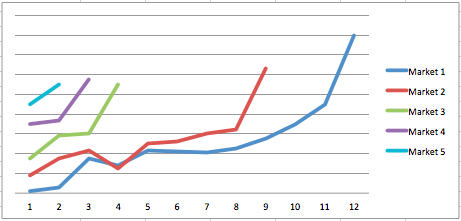Corporate Arrogance – Hubris & Hara-Kiri

The Price to Pay
While we pay our respects to a blue-blooded brand Kodak, I can’t help but think about what led to its dismal performance and downfall. People may blame it on disruption, creative destruction and of course the irony of the digital age, but to me, it reeks of something deeper and more innate – leadership arrogance.
In his book The Sacred Art of Soul-Making, Joseph Naft had said Arrogance – Those to whom much has been given sometimes suffer from arrogance; or rather the people around them suffer. Arrogance is doubly a pity because the talents of the arrogant serve primarily themselves. The arrogant assume his views and opinions are The Truth. In arrogance, natural confidence goes sadly awry. Rather than the self-assurance born of knowing his strengths and limitations, arrogance admits no limits. The arrogant brooks no weakness in himself and may even secretly rejoice to find flaws in others. But imperfections are inherent in being human, so the arrogant, like everyone else, always has feet of clay, however well hidden they may be. Fearing exposure, haughtiness forms a hard shell masking inner emptiness.”
While Naft had written this in the context of human leadership it can well be extended to corporates as a whole. The arrogant corporate behaves as a power on its own. The self-grandiose opinion is that they rule the market, believing in one’s so-called strengths and oblivious to the weaknesses. There are imperfections and it is these imperfections that competition will latch on to.
In the ’70s, Kodak had nearly 90 per cent of the film and camera market. With a near-monopoly and unassailable position, there was a certain haughtiness that crept into Kodak. Arrogance and complacency are often the by-products and Kodak has been no exception.
Success cannot be forever and an organization has to keep working to be ahead of the pack. Organizations like Kodak came to believe their success is due to an inherent superiority they have and even worse than this superiority will go on forever. So typical of the superiority complex syndrome!
‘Hubris’ – the word was used to refer to the emotions in Greek tragic heroes that led them to ignore warnings from the gods and thus invite catastrophe. It is considered a tragic flaw that stems from overbearing pride and a lack of piety. The word is taken directly from the Greek hubris, meaning ‘insolence or pride’. Companies lose contact with reality and have an overestimation of one’s competence or capabilities. This leads to complacency which is when the rot begins to set in. This insular behaviour prevents organizations from reacting to changes in technology. They tend to live in the past and believe that what was successful in the past will be successful in the future.
Leadership can be a curse. In 1976, Foster coined the phrase ‘incumbent’s curse’. Companies become so captive to their core business that they can scarcely imagine another way of doing things. Kodak invented the digital camera in the 1970s but since it had become successful in the film-related market, it developed a logic called dominant logic which overpowered any other logic which was contrary to it. When the photography world went digital, Kodak’s strengths became weaknesses. It could not overcome its dominant logic and look at an alternative one logic.
The incumbent’s curse has been evident in many other companies today, such as Blackberry-maker Research in Motion, Hewlett-Packard, Digital, Best Buy, Intel, and many others.
It does not mean that an epitaph has to be put out for Kodak. Kodak has much strength to leverage. Many other companies have got out of the rut and looked at things anew. IBM, GM, and to a certain extent even Apple have done so. It calls for a complete change in mindsets and to take a route that differs from the past.
June Tangney in one of her papers had identified several key features of humility that can be adapted to a corporate:
· An accurate (not underestimated) sense of one’s abilities and achievements – stay humble
· The ability to acknowledge one’s mistakes, imperfections, gaps in knowledge, and limitations. – reflect honestly
· Openness to new ideas, contradictory information and advice – grasp the current condition
· Keeping one’s abilities and accomplishments in perspective.
· Relatively low focus on self and the ability to “forget the self” – stay humble



